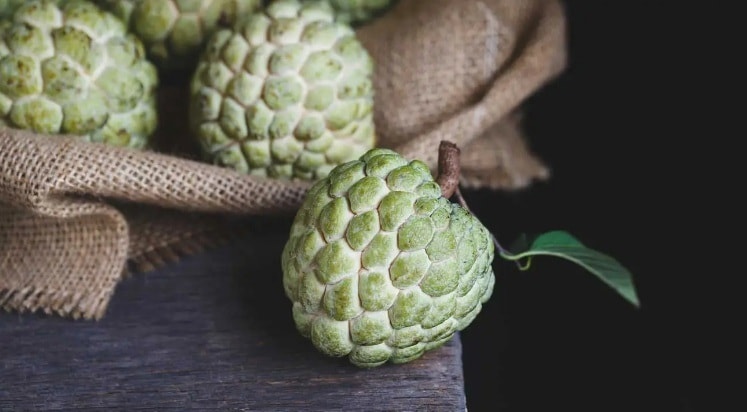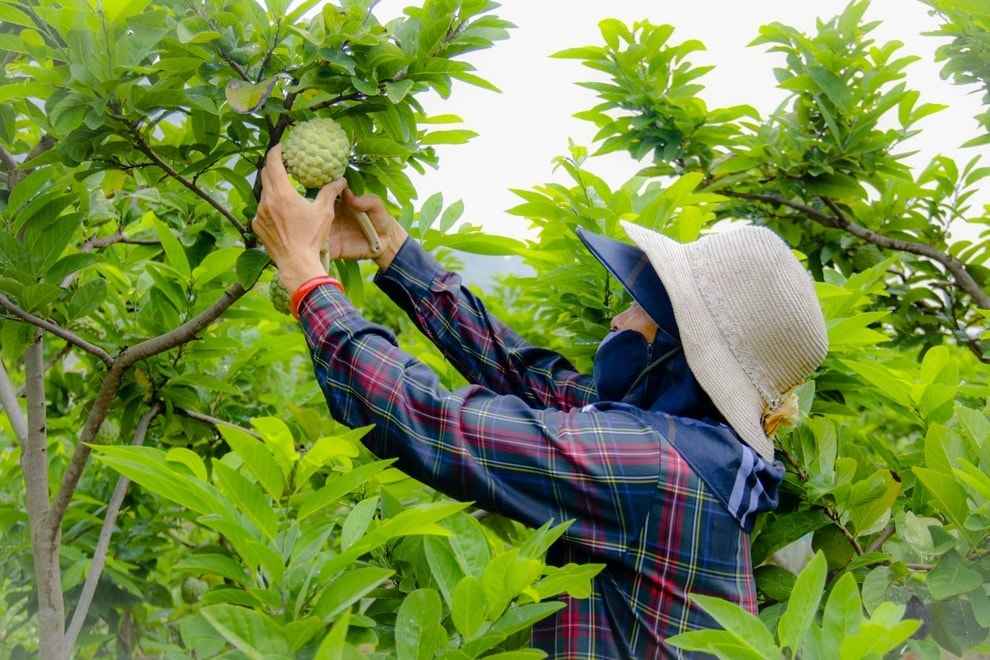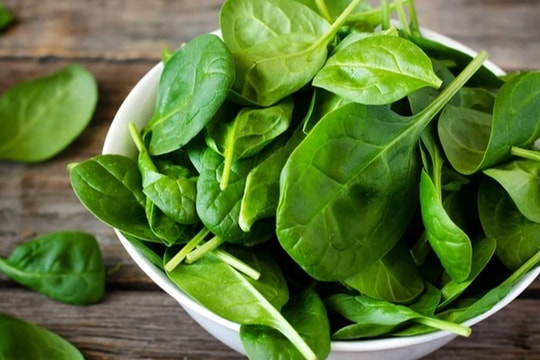4 things to avoid harming your health when eating custard apple
Custard apple has many health benefits, however, we need to eat it properly to get maximum benefits, especially to avoid unwanted effects.
Health benefits of custard apple
Dr. - Traditional Medicine Practitioner Phung Tuan Giang, President of the Vietnam Institute for Research and Development of Traditional Medicine, said that custard apple is a fruit with a unique flavor and potential health benefits. In the fall, from late July to early October, custard apples are at their peak. Custard apple (Annona squamosa) belongs to the Annonaceae family.
Researchers have found that different parts of the custard apple tree possess a variety of bioactive compounds with high levels of polyphenols and alkaloids, which are used in folk medicine to treat eye and heart diseases, skin and digestive problems.
Custard apple is not only delicious but also has nutritional value and health benefits.

Custard apples have many health benefits. Photo: Healthline
"In terms of nutrition, custard apple contains carbohydrates rich in soluble fiber, protein, a small amount of fat, vitamin C, vitamin B6, potassium, riboflavin, thiamine, folate, niacin, pantothenic acid, manganese, magnesium, copper, phosphorus, iron. 100 grams of custard apple flesh provides the body with about 70-80 calories," said physician Giang.
According to experts, the benefits of custard apple come from its antioxidant, fiber, and micronutrient content. It has anti-inflammatory properties and nutrients important for heart, digestive, and cognitive health.
Similar toHealthline, custard apples are rich in antioxidants, which fight free radicals in the body. High levels of free radicals can cause oxidative stress, which is linked to many chronic diseases, including cancer and heart disease.
Certain compounds in custard apples — including kaurenoic acid, flavonoids, carotenoids, and vitamin C — have powerful antioxidant effects.
One test-tube study found that both the peel and pulp are excellent sources of antioxidants, with compounds in the peel being particularly effective at preventing oxidative damage. However, it is important to note that you should not eat the peel due to health concerns.
Additionally, custard apples are rich in nutrients that help regulate blood pressure, such as potassium and magnesium. Both potassium and magnesium increase the elasticity of blood vessels, thereby helping to lower blood pressure. High blood pressure can increase the risk of heart disease and stroke.
Several compounds in custard apples may help fight cancer. Custard apples contain flavonoids including catechin, epicatechin, and epigallocatechin, which have been shown to inhibit the growth of cancer cells in test-tube studies.
One study found that treating bladder cancer with epicatechin resulted in significantly less cell growth and multiplication than cells that did not receive this flavonoid.
Another test-tube study observed that several catechins — including those in custard apples — blocked the growth of breast cancer cells by up to 100%.
What's more, studies also show that people who consume diets rich in flavonoids have a lower risk of certain types of cancer — such as stomach and colon cancer — than those whose diets are low in these compounds.

Custard apples contain small amounts of toxic compounds in their seeds and peels. Photo: Kha Van
Eat custard apple properly for good health
Although custard apple offers impressive health benefits, it does contain small amounts of toxic compounds.
Custard apples and other fruits of the Annona species contain annonacin, a toxin that can affect your brain and nervous system. All parts of the custard apple tree can contain annonacin, but it is most concentrated in the seeds and skin.
To enjoy custard apples and limit your exposure to annonacin, remove and discard the seeds and skin before eating.
Below, Doctor Giang notes when eating custard apple to ensure health safety:
-Choose delicious custard apples
You should choose custard apples that are big and round, with big eyes, white eye gaps, small stems, soft ripe fruit that does not crack, and skin without black spots. You should buy custard apples with clear origin, preferably organic. We should not eat custard apples with skin that has many white scales, many cracks, or is watery. These custard apples are often rotten and have maggots.
-Do not break the custard apple seeds.
When eating custard apples, people should not bite and break the seeds because they are toxic. Custard apple seeds contain substances such as squamosten A, anoslin, neo-desacetyluvaricin, neo-anonin-B, neo-reliculatacin A, squamocins, squamostatins...
If you accidentally swallow the seeds, you don't need to worry too much, because the thick hard shell covering the custard apple seeds will not cause the seeds to release toxins. However, you should be careful when eating them because swallowing the seeds can cause choking.
-You should only eat one custard apple per day.
According to traditional medicine, custard apple has a sweet and sour taste and warm properties. Eating too much can cause heat, constipation, and acne. You should eat it as a snack instead of sweets and fast food.
-Do not use other parts of the custard apple tree without permission.
Custard apple has been used for a long time, everyone knows about its nutritional benefits. However, other parts from seeds, leaves, stems, roots also have many pharmacological effects such as causing cancer cell toxicity, antibacterial, antifungal, antiparasitic... These effects are being researched by scientists.
However, because they are toxic, people should not use them arbitrarily./.






